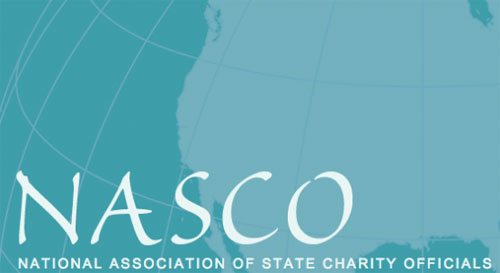
On Wednesday, the National Association of State Charity Officials (NASCO) sent a letter to Congressional leaders, signed by Karen Gano, current president of NASCO’s board of directors, opposing efforts to repeal or weaken the Johnson Amendment, which prohibits 501(c)(3) organizations from endorsing, opposing, or contributing to the campaigns of people running for public office.
NASCO, an association of state charity regulators (including assistant attorneys general and other state officials), has taken formal positions with Congress only twice previously in its 38-year history. State charity offices have often been the enforcers of the statutes and regulations governing the affairs of charitable nonprofits, and they’ve become more primary in this role of late as the IRS has suffered from underfunding. Because they have been generally tasked with representing the interests of the people vis-à-vis the charitable sector, the group’s voice on this issue is critical.
The network of state charity officials explains that eliminating or weakening the Johnson Amendment would rob Americans of a safe “public forum for people of all beliefs and interests to collaborate and exchange ideas on solving community problems, fostering art and culture, and promoting the public good without the distractions of party labels and political rhetoric.”
Additionally, reads the letter, it “could create the appearance of a conflict between obligations charities have under federal law (for purposes of retaining tax-exemption) and obligations they have under common law. Removing the prohibition on electioneering from the tax code could give charitable organizations the impression that they may now spend their resources supporting or opposing candidates for office. Under common law, they may not.”
Sign up for our free newsletters
Subscribe to NPQ's newsletters to have our top stories delivered directly to your inbox.
By signing up, you agree to our privacy policy and terms of use, and to receive messages from NPQ and our partners.
The letter goes on to say that “weakening or repealing the Johnson Amendment would adversely impact our member offices’ ability to protect the integrity of charitable assets and charitable solicitations.”
“Electioneering is not considered a charitable purpose under common law, and many state charities regulators would consider expenditure of charitable funds on such purposes to be inappropriate, possibly illegal,” the letter states, adding as a point of political reality that removing the prohibition would leave nonprofits vulnerable to being pressured by political candidates and their operatives. “The Johnson Amendment ensures that nonprofits may be independent of electioneering and political campaigning, which also helps ensure that charities regulators can work cooperatively to combat charities fraud and protect charitable assets, regardless of the political affiliation of our elected and appointed Attorneys General, Secretaries of State or other officials.”
In other words, they see any repeal or weakening of the amendment as potentially compromising “the ability of state charities officials to identify and take action against fraud and abuse of charitable solicitations and use of charitable assets.” So, changing the law isn’t just bad for charitable nonprofits, foundations, and the public; it also harms the ability of charity regulators to enforce laws that protect all of us.
In conclusion, NASCO declared it “joins the thousands of nonprofit and religious organizations urging Congress to maintain the Johnson Amendment,” which so far includes more than 4,000 religious leaders, nearly one hundred religious denominations and organizations, and more than 5,500 charitable nonprofits and foundations.













